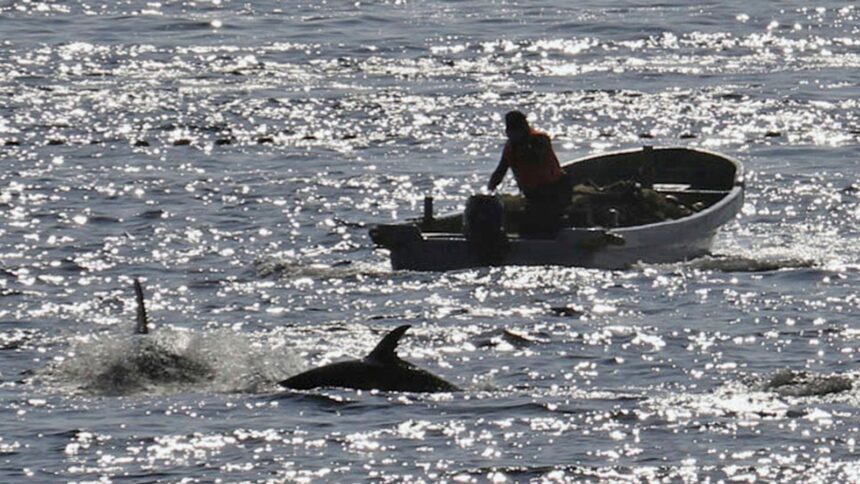There’s a chance that hundreds of dolphins will be slaughtered for flesh or brought into captivity during the roughly six-month-long hunt, which began last week off the coast of Taiji in Wakayama Prefecture.
Critics persist despite the tradition’s supporters’ earlier claims that it is no different from the significantly higher number of cows, pigs, and sheep slain in the West.
The non-profit Dolphin Project, with its headquarters in California, claims that widespread hunting of any animal is “troubling for environmental reasons”.
On its website, the organization writes, “The ocean ecosystem is a carefully balanced network of symbiotic life; removing large numbers of apex predators, like dolphins, can upset that balance and affect overall marine health.”
Since dolphins are mammals and breed more slowly than fish, it is more difficult to reestablish a population.
Dolphin Project claimed that, compared to the Japan Fisheries Agency’s quota of 1,824 dolphins, an estimated 415 dolphins were killed or seized in 2018.
Following its resignation from the International Whaling Commission in 2019, Japan came under fire for ending thirty years of “research whaling,” which it claimed was a front for commercial hunts that the commission had outlawed in 1988.







